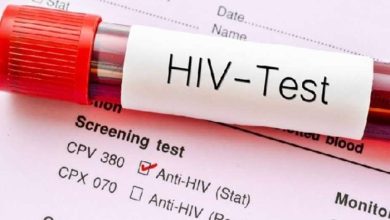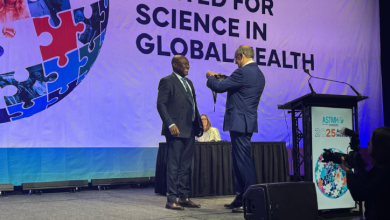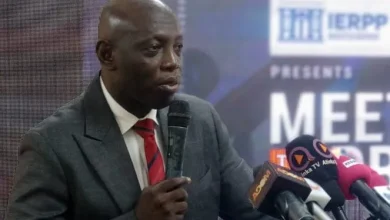World Environment Day – From sachet to solution

On a rainy June afternoon in Accra, 12-year-old Kwame and his little sister stand barefoot at the edge of a flooded street in Alajo, watching black water curl around sachet water packets, broken styrofoam bowls, and empty biscuit wrappers.
The water, laced with the weight of Ghana’s modern convenience culture, isn’t just inconvenient, it’s dangerous. For families like Kwame’s, who live in low-lying areas, the consequences of our plastic habits are no longer distant or abstract.
They are right there, floating in the gutters, seeping into homes, and threatening livelihoods.
Ghana’s plastic waste culture has become one of our most pressing environmental and public health issues. And yet, it’s easy to feel desensitised, after all, sachet water is a part of our daily lives.
It’s affordable, accessible, and almost invisible in its ubiquity. We don’t pause to consider what happens after we toss that empty packet to the ground or into an overflowing bin. But it’s time we did.
The Plastic Problem
Ghana generates over 1.1 million tonnes of plastic waste each year, according to UNDP estimates, and only about 5% is recycled. The rest? It ends up choking our drains, littering our beaches, and contaminating our soil and water bodies.
Sachet water, which revolutionised safe drinking water access for the average Ghanaian, is now one of the most pervasive pollutants in our environment.
Walk through any market – from Makola to Kejetia – and you’ll see the evidence: black rubber bags drifting along with the wind, styrofoam food containers stacked in gutters, and the silvery glint of sachets trapped in open drains. It’s not that Ghanaians don’t care.
In fact, most people express frustration at the sheer amount of waste. But the gap between awareness and action is wide. Due to the shape of our culture, convenience, and a lack of viable alternatives, a lot have thrown their hands up in despair.
Where Do We Go from Here?
To put an end to plastic pollution, we must first change the way we think about waste. That means moving beyond blaming individuals for littering and focusing instead on systems, structures, and sustainable shifts in behaviour.
- Reframing Responsibility
Plastic waste isn’t just a sanitation issue, it’s a governance and economic challenge. While city authorities are overwhelmed and underfunded, plastic producers rarely take responsibility for the post-use life of their products. Extended Producer Responsibility (EPR) policies, where companies are required to help manage the waste they create, must be enforced and scaled.
- Investing in Innovation
Across the country, small-scale innovators are doing big things. In Kumasi, a startup is turning plastic waste into building materials. In Accra, women-led cooperatives are transforming sachets into handbags and wallets. These efforts deserve national recognition and real investment. Imagine if we channeled even a fraction of the government’s procurement budget toward products made from recycled plastics, it would give new life to old waste and new jobs to thousands.
- Embracing Behavioural Change
We need a cultural shift in how we perceive cleanliness and convenience. In the 1980s, it was common to carry handkerchiefs and metal containers for water and food. Today, ‘disposable everything’ is King. Campaigns that tap into national pride and community action, like Zoomlion’s “Clean Ghana” or the recent “Plastic-Free July” initiatives, can help make sustainability cool again. But they must go beyond slogans. Schools, churches, mosques, media platforms and you and I need to reinforce practical actions that stick.
- Creating Accessible Alternatives
Change is only possible when people have options. Encouraging reusable water bottles sounds good, but for someone earning less than GH₵20 a day, sachet water is not a choice – it’s survival. We need local businesses to produce low-cost, eco-friendly packaging and make it widely available. We need policies that subsidise biodegradable materials and penalise the most harmful plastics.
Cost of Inaction
Plastic pollution is not just about aesthetics or the environment, it’s about people. Every year, floods caused by plastic-choked drains displace families. Fisherfolk in Kpando and Dixcove pull more plastic than fish from the sea. Burning plastic waste in communities like Agbogbloshie releases toxic fumes that affect children’s lungs before they even turn 10.
Posterity will judge us someday, and I don’t think this is the legacy we want to leave behind. Ghana’s culture is one of resourcefulness, resilience, and community. These are the very values we must draw on to rethink our relationship with plastic.
From Sachet to Solution
The sachet water packet, so light and seemingly insignificant, is a symbol of both progress and pollution. It tells the story of how far we’ve come, bringing clean water to the masses, and how far we still need to go to ensure that convenience doesn’t come at the cost of our health, environment, and future.
This World Environment Day, let’s not just talk about ending plastic pollution. Let’s start with what’s in our hands – the sachet – and reimagine a Ghana where plastic waste doesn’t define our streets, our seas, or our story. The change won’t happen overnight, but every solution starts with a shift in mindset, in policy, and in purpose.
–
About the author: Ama Cromwell is a communications strategist and passionate environmentalist dedicated to promoting eco-friendly initiatives in Ghana.










